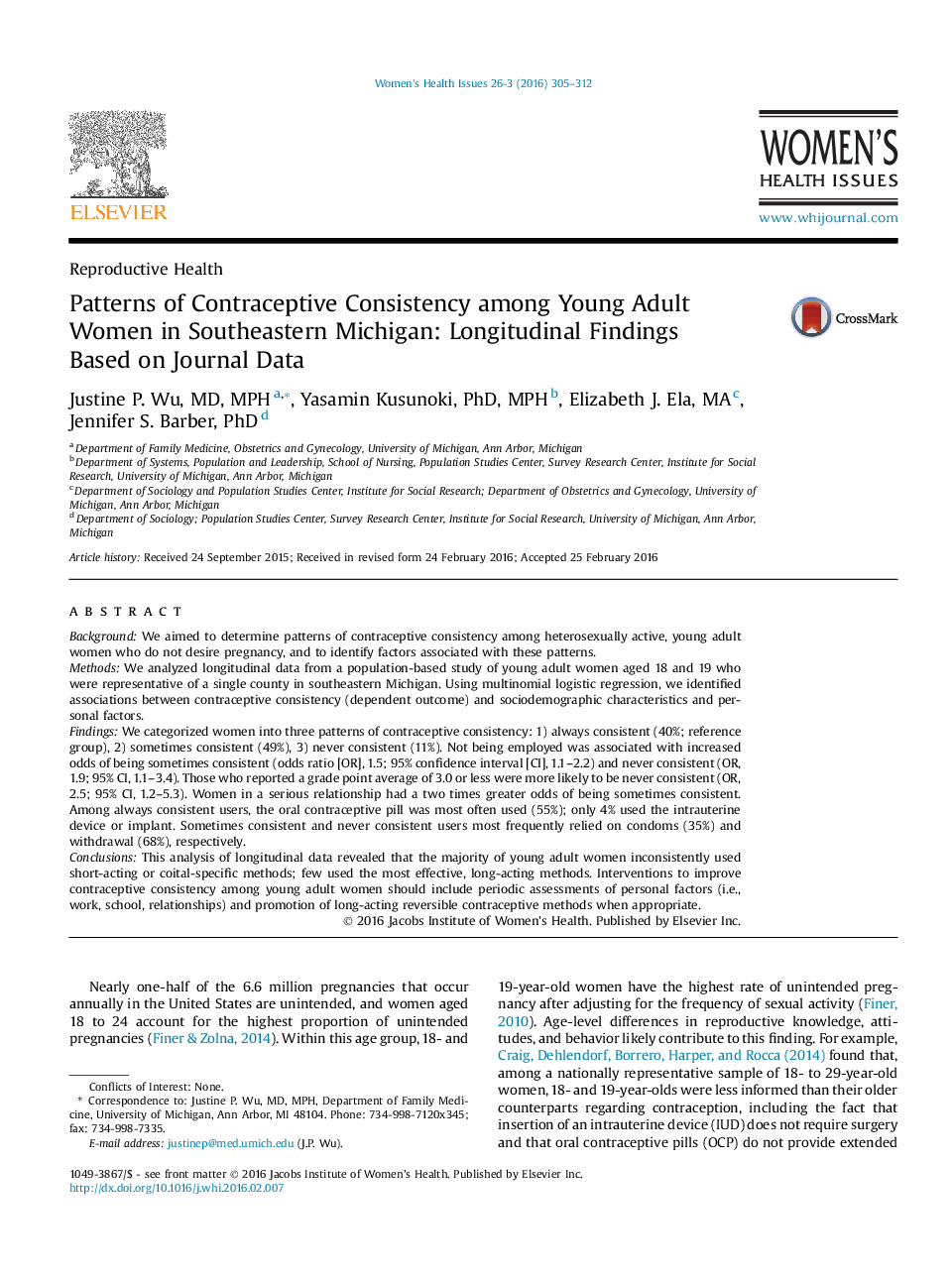| کد مقاله | کد نشریه | سال انتشار | مقاله انگلیسی | نسخه تمام متن |
|---|---|---|---|---|
| 1092912 | 952352 | 2016 | 8 صفحه PDF | دانلود رایگان |
BackgroundWe aimed to determine patterns of contraceptive consistency among heterosexually active, young adult women who do not desire pregnancy, and to identify factors associated with these patterns.MethodsWe analyzed longitudinal data from a population-based study of young adult women aged 18 and 19 who were representative of a single county in southeastern Michigan. Using multinomial logistic regression, we identified associations between contraceptive consistency (dependent outcome) and sociodemographic characteristics and personal factors.FindingsWe categorized women into three patterns of contraceptive consistency: 1) always consistent (40%; reference group), 2) sometimes consistent (49%), 3) never consistent (11%). Not being employed was associated with increased odds of being sometimes consistent (odds ratio [OR], 1.5; 95% confidence interval [CI], 1.1–2.2) and never consistent (OR, 1.9; 95% CI, 1.1–3.4). Those who reported a grade point average of 3.0 or less were more likely to be never consistent (OR, 2.5; 95% CI, 1.2–5.3). Women in a serious relationship had a two times greater odds of being sometimes consistent. Among always consistent users, the oral contraceptive pill was most often used (55%); only 4% used the intrauterine device or implant. Sometimes consistent and never consistent users most frequently relied on condoms (35%) and withdrawal (68%), respectively.ConclusionsThis analysis of longitudinal data revealed that the majority of young adult women inconsistently used short-acting or coital-specific methods; few used the most effective, long-acting methods. Interventions to improve contraceptive consistency among young adult women should include periodic assessments of personal factors (i.e., work, school, relationships) and promotion of long-acting reversible contraceptive methods when appropriate.
Journal: Women's Health Issues - Volume 26, Issue 3, May–June 2016, Pages 305–312
